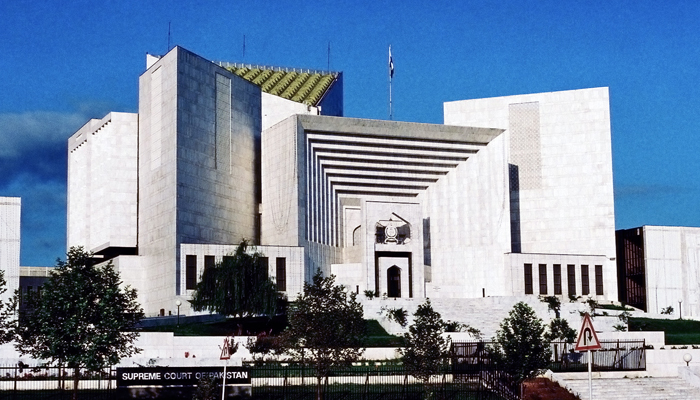Sindh opts against holding Senate elections through open-ballot voting
"No legal question was raised in the reference, therefore, the apex court should refrain from giving its opinion on it"
The Sindh government on Monday rejected the presidential reference filed at the Supreme Court seeking to hold Senate elections via an open-ballot system.
In the reply submitted to the SC, Sindh said that the presidential reference was filed for "political expediency," as no legal question was raised in the reference, therefore, "the apex court should refrain from giving its opinion on it."
Sindh government said that the Senate elections are held under the constitution and the presidential reference raises questions about political, social, and moral values — that have nothing to do with the constitution.
The Election Act 2017 only clarifies the procedure for Senate elections, the response stated, adding that legislation on Upper House's elections should be done in the Parliament.
"All elections under Article 226 of the Constitution, including the Senate, are held through secret ballot, so the presidential reference should be dismissed," it said.
Its is pertinent to mention here that Sindh is the only province that has rejected the idea of holding the Senate elections through open-balloting.
On the other hand, Khyber Pakhtunkhwa, Punjab, and Balochistan governments have backed the federal government's opinion of holding open-ballot polls. Moreover, three days ago, Chairman Senate Sadiq Sanjrani also voice support for the idea.
'Open ballot elections will require constitutional amendment'
On January 16, in its written response to the SC in the presidential reference seeking an opinion on Senate elections, the Election Commission of Pakistan (ECP) stated that in order to switch from secret balloting to an open ballot method, an amendment to the Constitution will be required.
The ECP said that the Senate elections, much like the elections for the prime minister and the president, fall under the Constitution.
"To bring about an end to secret balloting, a constitutional amendment will be required," said the election commission.
The response on behalf of the ECP secretary was filed to the court by Advocate Shahjeel Shehryar Swati and spans 12 pages.
The presidential reference
The reference, filed by the government, says that the president has sought the apex court's opinion on whether the condition of holding a secret ballot referred to in Article 226 of the Constitution is applicable only for the elections held under the Constitution such as the election to the office of president, speakers and deputy speakers of the Parliament and provincial assemblies and "not to other elections such as the election for the members of Senate" held under the Elections Act 2017 enacted to pursuant to Article 222 read with Entry 41 (1) of the Fourth Schedule to the Constitution "which may be held by way of secret or open ballot" as provided for in the Act.
According to the government, the nature of the elections and the way it is conducted has not been clearly mentioned in the Constitution.
The government has said that the election for the Senate is conducted in accordance with the Election Act of 2017 and asked if it is possible to introduce the idea of open-balloting in the Upper House of the Parliament.
-
Security forces gun down 30 terrorists in multiple IBOs in KP: ISPR
-
MQM-P calls for new province in Sindh
-
US report validates Pakistan military edge over India: PM
-
Banned TTP poses serious threat to Pakistan security: UNSC panel
-
CM Afridi clarifies remarks on by-poll after ECP requests army deployment
-
Dubai sees 3.2m Pakistani passengers in 2025 as airport sets new milestone
-
Security forces kill 23 Indian proxy terrorists in KP's Kurram
-
Pakistan to construct island to boost oil exploration: report












